Snoring Solutions: Causes, Diagnosis & Treatments
A quiet night’s sleep is essential for your health and well-being. For some individuals, disruptive snoring can turn rest into a nightly struggle, affecting not just the snorer but their loved ones too.
At Sleeping Lab, Malaysia’s leading specialist in sleep health, we understand how disruptive snoring can be. Our goal is to provide personalised snoring solutions that address the root cause, helping you breathe easier, sleep better, and enjoy healthier days ahead.

Is Snoring Normal?
Occasional, light snoring is generally not a cause for concern. However, loud, persistent snoring that occurs on most nights is a strong indicator of a partially obstructed airway. This type of chronic snoring is not normal and may be a symptom of a more serious underlying condition, such as Obstructive Sleep Apnea (OSA), which requires medical attention.
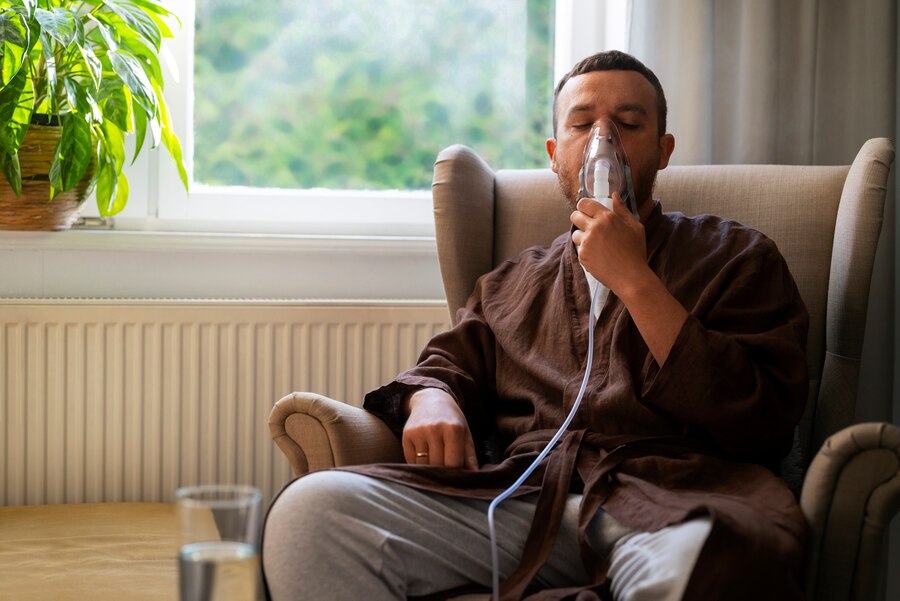
Common Symptoms, Causes & Diagnosis of Problematic Snoring
Identifying the characteristics and triggers of your snoring is the first step toward finding the right treatment. A systematic evaluation helps pinpoint the underlying cause.
Symptoms to Watch Out For
If you notice any of the following symptoms, it may indicate problematic snoring or a related sleep disorder:- Gasping or choking sounds during sleep
- Loud, persistent snoring night after night
- Morning headaches or dry mouth
- Excessive daytime sleepiness or irritability
- Difficulty focusing or mood swings
What Causes Snoring
Snoring occurs when airflow is partially blocked, causing tissues in the throat to vibrate. Common causes include:- Relaxed throat muscles during sleep
- Nasal congestion or blockages
- Excess weight or thick neck tissue narrowing the airway
- Alcohol consumption or sedatives that relax throat muscles
- Enlarged uvula, tonsils, or soft palate interfering with airflow
How Snoring is Diagnosed
At Sleeping Lab, a thorough diagnostic process ensures the root cause of snoring is identified. This includes:
- Physical and ENT Evaluation: A thorough examination of the nose, mouth, palate, and airway.
- Sleep Questionnaires: Detailed forms to assess your sleep history, symptoms, and lifestyle factors.
- In-Clinic or Home-Based Sleep Studies: An overnight sleep study (polysomnography) is the definitive method for analysing breathing patterns and diagnosing sleep apnea.
- Airway Obstruction Assessment: In some cases, imaging or endoscopy may be used to identify the specific site of airway obstruction.
- Loud snoring: Snoring is a primary symptom, resulting from air being forced through a partially blocked airway.
- Gasping or choking: You may wake up gasping for air as your body reacts to the lack of oxygen during an apnea or breathing pause.
- Dry mouth: Waking with a dry mouth or sore throat can be a result of breathing through your mouth due to an obstruction.
- Daytime fatigue: Poor sleep quality leads to excessive daytime sleepiness, impacting your concentration and energy levels.
- Irritability: The ongoing lack of restorative sleep can negatively affect your mood, causing increased irritability and mood swings.
Why You Shouldn't Ignore Chronic Snoring
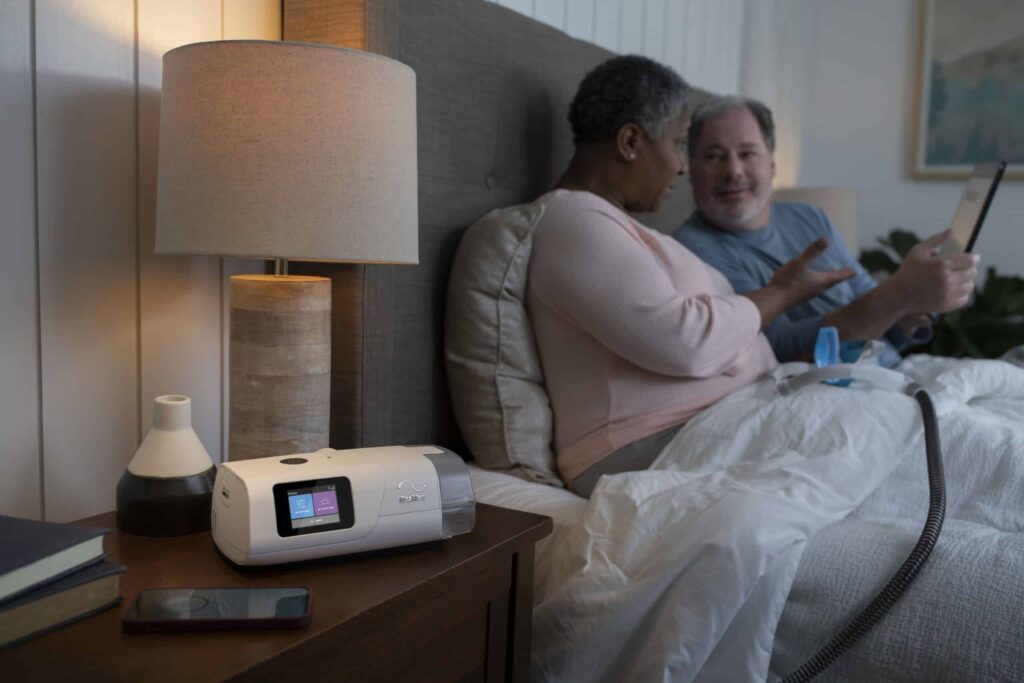
It is important to address persistent snoring due to its links to significant health risks.
- Loud snoring: Snoring is a primary symptom, resulting from air being forced through a partially blocked airway.
- Gasping or choking: You may wake up gasping for air as your body reacts to the lack of oxygen during an apnea or breathing pause.
- Dry mouth: Waking with a dry mouth or sore throat can be a result of breathing through your mouth due to an obstruction.
- Daytime fatigue: Poor sleep quality leads to excessive daytime sleepiness, impacting your concentration and energy levels.
- Irritability: The ongoing lack of restorative sleep can negatively affect your mood, causing increased irritability and mood swings.
Anti-Snoring Devices That Actually Work
For many individuals, anti-snoring devices prescribed by a healthcare professional offer a non-invasive treatment option. It is important to differentiate between over-the-counter products and medically prescribed devices. At Sleeping Lab, we provide solutions that are based on clinical evidence and designed for your specific diagnosis.
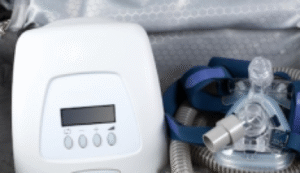
Oral Appliances (Mandibular Advancement Devices)
A Mandibular Advancement Device (MAD) is a custom-made mouthpiece that is one of the leading non-surgical snoring solutions. It is designed to be worn comfortably while you sleep.
- How it Works: Gently moves the lower jaw forward to keep the airway open and prevent tissue vibration.
- Pros: Highly effective, silent, portable, and non-invasive.
- Cons: Requires professional fitting; may cause temporary jaw discomfort.
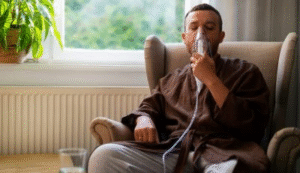
Nasal Dilators and Breathing Aids
Nasal dilators are simple devices designed to improve airflow through the nasal passages. They come as either external strips that stick to the outside of the nose or internal dilators that fit inside the nostrils.
- How it Works: External strips or internal dilators physically hold the nostrils open to improve nasal breathing.
- Pros: Inexpensive and widely available.
- Cons: Does not treat snoring originating from the throat, nor does it address sleep apnea.
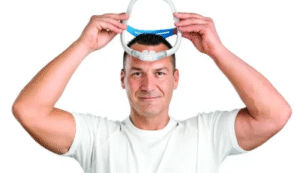
CPAP Machines for Sleep Apnea
Continuous positive airway pressure (CPAP) therapy is one of the most effective solutions for treating obstructive sleep apnea (OSA) and the associated snoring.
- How it Works: Delivers a continuous stream of pressurised air through a mask, keeping the airway open and preventing both snoring and breathing pauses.
- Pros: The most effective method for eliminating sleep apnea and its associated snoring.
- Cons: Can be cumbersome for some users as requires nightly use and regular cleaning.
Laser Treatment for Snoring (Non-Invasive Option)
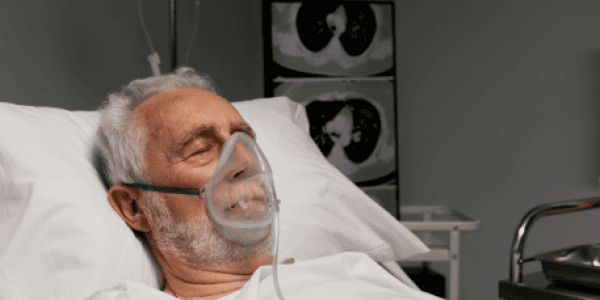
For individuals seeking a non-invasive procedure, laser treatment for snoring offers a modern and effective solution. This treatment, known as laser-assisted uvulopalatoplasty (LAUP), uses targeted laser energy to gently heat and stiffen the tissues of the soft palate. This process reduces the vibrations that cause snoring.
Key benefits of this procedure include:
- It is an in-clinic procedure associated with minimal discomfort.
- There is typically no required downtime, allowing for a resumption of normal activities.
- Some patients report a reduction in snoring after the initial session.
Sleep Apnea & Surgical Solutions
When non-surgical treatments are not sufficient, a structural correction of the airway may be explored.
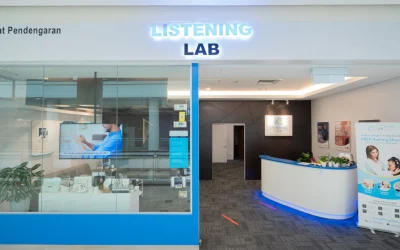
When Is Surgery Recommended for Snoring?
Surgery is typically recommended if non-invasive methods like CPAP or oral appliances are ineffective or not tolerated by the patient. It is also a primary option if a physical examination reveals a clear anatomical blockage, such as enlarged tonsils or a deviated septum, that can be surgically corrected.
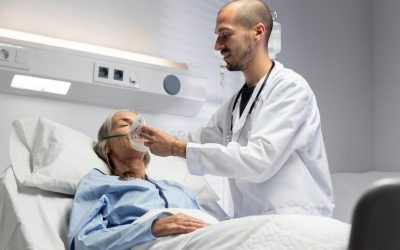
Common Surgical Options
Several surgical procedures are available to address the physical structures that contribute to snoring and sleep apnea. The specific surgical procedure depends on the location of the obstruction.
- Uvulopalatopharyngoplasty (UPPP): Removes excess tissue from the soft palate and uvula to open the back of the throat.
- Septoplasty: Straightens a deviated septum to improve airflow through the nose.
- Tonsillectomy and Adenoidectomy: Removes enlarged tonsils and/or adenoids that are blocking the airway.
- Radiofrequency Ablation: Uses energy to shrink and stiffen tissues in the soft palate or tongue, reducing the vibrations that cause snoring.
Why Choose Sleeping Lab’s Snoring Clinic?
Choosing the right healthcare professional and a trusted sleep clinic in Malaysia can make all the difference in achieving lasting relief. At Sleeping Lab Malaysia, we offer a patient-centric approach grounded in medical expertise. Our specialists are dedicated to improving your sleep quality and overall health through accurate diagnosis and personalised treatment plans.
By providing a comprehensive range of solutions—from custom-fitted anti-snoring devices to advanced laser treatment for snoring and surgical consultations—we partner with you to achieve quiet, restorative sleep.
Frequently Asked Questions about Snoring Solutions
Although not all forms of sleep apnea can be completely cured, they can be effectively managed. The most effective approach involves a combination of lifestyle adjustments, such as weight loss and exercise, and medical treatments like CPAP therapy or custom-fitted oral appliances.
Pay attention to symptoms like loud snoring, pauses in your breathing while you sleep, gasping for air, and waking up with a dry mouth or headache. If you experience these signs or excessive daytime sleepiness, we recommend that you consult a sleep specialist in Malaysia or schedule a professional sleep apnea test.
Other effective options include oral appliances, surgery, and lifestyle changes, depending on the severity of your condition.


